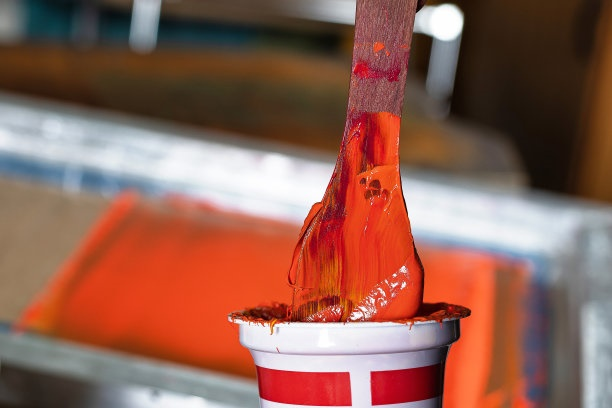Eco Friendly Denim Shirt Printing Solutions for Sustainable Brands
Looking for eco-friendly denim shirt printing solutions for your sustainable brand? Discover innovative, low-impact techniques like water-based inks, organic dyes, and digital printing that reduce waste and pollution. Learn how sustainable brands can adopt green practices—from biodegradable transfers to recycled materials—while maintaining high-quality designs. This guide covers the latest advancements in sustainable denim printing, including energy-efficient processes and certifications (e.g., GOTS, OEKO-TEX) to ensure ethical production. Whether you're a startup or an established brand, explore cost-effective methods to align with eco-conscious values without compromising style or durability. Dive into case studies of brands successfully implementing these solutions and tips to market your eco-friendly denim line to environmentally aware consumers.
---

Eco-Friendly Denim Shirt Printing Solutions for Sustainable Brands
Introduction
The fashion industry is undergoing a transformative shift toward sustainability, and denim—a timeless staple—is at the forefront of this change. Traditional denim production, however, is notoriously resource-intensive, involving excessive water use, toxic chemicals, and high carbon emissions. For brands committed to sustainability, adopting eco-friendly denim shirt printing solutions is no longer optional—it’s a necessity.
This article explores cutting-edge, environmentally responsible printing techniques that reduce ecological harm while delivering vibrant, long-lasting designs. From water-based inks to laser engraving, we’ll delve into methods that align with circular fashion principles and meet the growing demand for sustainable denim apparel.
---
1. The Environmental Impact of Conventional Denim Printing
Traditional denim printing relies heavily on synthetic dyes, plastisol inks, and chemical washes, which pose significant risks:
- Water Pollution: Toxic runoff from dyeing and printing contaminates waterways.
- High Energy Consumption: Screen printing and heat-setting require substantial electricity.
- Waste Generation: Excess ink, defective prints, and non-recyclable transfers contribute to landfill waste.
For eco-conscious brands, transitioning to greener alternatives is critical to minimizing these impacts while maintaining product quality.
---
2. Sustainable Denim Printing Techniques
2.1 Water-Based Inks
Unlike plastisol inks (which contain PVC and phthalates), water-based inks are free of harmful solvents. They penetrate fabric fibers for a softer finish and decompose naturally without releasing microplastics.
Benefits:
- Non-toxic and biodegradable.
- Requires less water rinsing post-printing.
- Complies with OEKO-TEX® and GOTS certifications.
2.2 Digital Printing
Digital printing uses precision technology to apply designs directly onto fabric, eliminating the need for screens and reducing ink waste by up to 30%.
Advantages:
- Ideal for small batches, reducing overproduction.
- Allows intricate, customizable designs with minimal dye usage.
- Lower carbon footprint compared to screen printing.
2.3 Organic and Plant-Based Dyes
Derived from natural sources like indigo, turmeric, and beetroot, these dyes avoid synthetic chemicals. Brands like Patagonia and Nudie Jeans use plant-based pigments for their hypoallergenic properties.
Key Points:
- Supports regenerative agriculture.
- Biodegrades safely without toxic residues.
2.4 Laser Engraving and Etching
Laser technology creates distressed or patterned effects without water or chemicals. It’s perfect for achieving vintage washes sustainably.
Why It’s Sustainable:
- Zero water usage.
- Reduces manual labor and chemical treatments.
---
3. Certifications and Standards for Eco-Friendly Printing
To verify sustainability claims, brands should seek:
- Global Organic Textile Standard (GOTS): Ensures organic fibers and eco-friendly processing.
- OEKO-TEX® Standard 100: Guarantees textiles are free from hazardous substances.
- Bluesign®: Certifies responsible resource use in production.
---
4. Case Studies: Brands Leading the Change
- Outerknown: Uses 100% organic cotton and water-based inks for its denim line.
- MUD Jeans: Implements circular practices, offering lease-and-recycle programs.
- E.L.V. Denim: Upcycles vintage denim with low-impact digital printing.
---
5. Marketing Your Sustainable Denim Brand
- Highlight eco-certifications on labels and e-commerce platforms.
- Educate consumers about the benefits of green printing via storytelling.
- Collaborate with influencers who advocate for sustainable fashion.
---
Conclusion
Adopting eco-friendly denim shirt printing solutions is a powerful step toward reducing the fashion industry’s environmental footprint. By leveraging innovations like digital printing, organic dyes, and laser technology, brands can create stylish, durable denim while upholding sustainability values. As consumer demand for ethical fashion grows, investing in these methods ensures long-term competitiveness and planetary stewardship.
Ready to make the switch? Partner with suppliers specializing in sustainable printing to future-proof your brand.
Global logistics
It can be shipped worldwide
About the MOQ
Minimum order quantity of 200 pieces
Support 24/7
Call us:(+86)136 6980 8954
Free sample
200 pieces MOQ Free sample







Customized product message